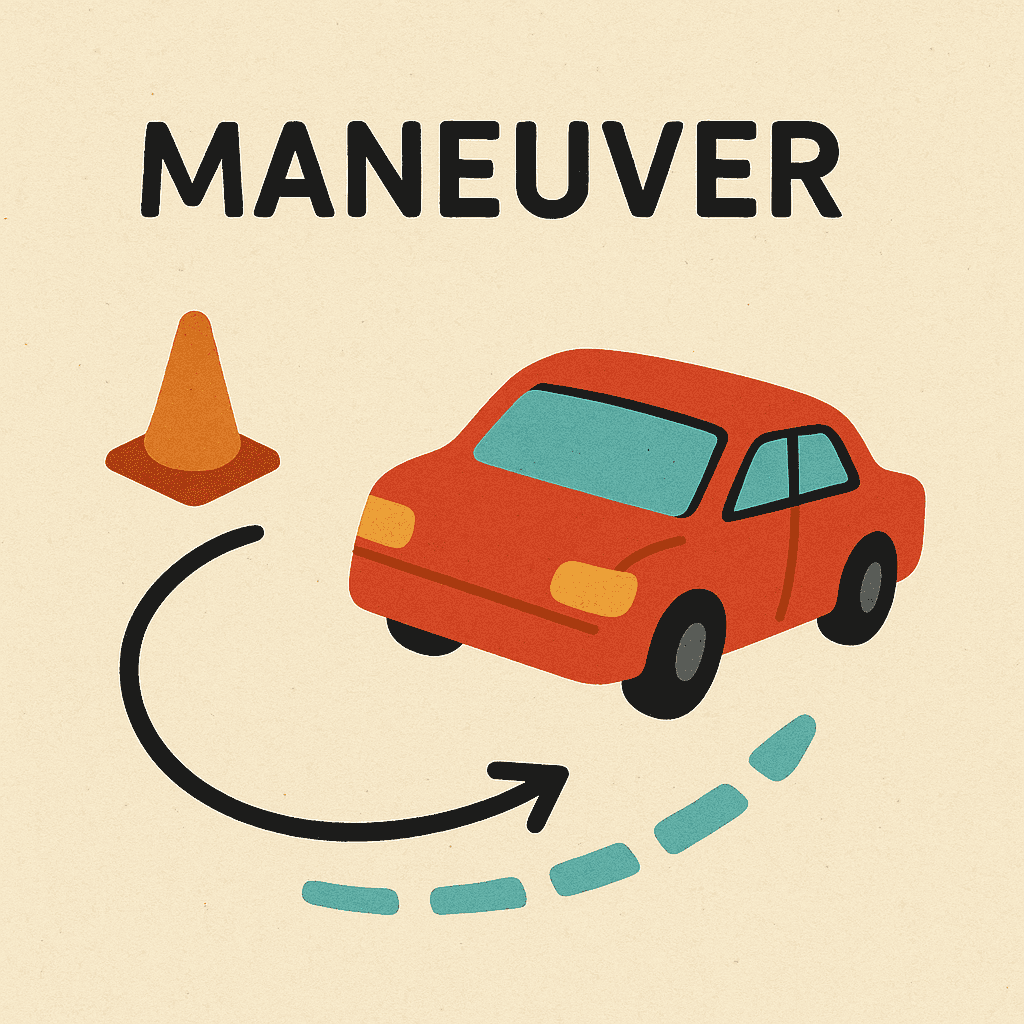Meaning
Maneuver (also spelled manoeuvre in British English) has two main uses:
- As a noun: a planned or skillful movement or action, often to achieve a specific goal.
- As a verb: to move or guide something skillfully and carefully, especially in a difficult situation.
It is commonly used in military, driving, and strategy contexts.
Grammar and Usage
-
Part of speech: noun & verb
-
Verb forms: maneuver – maneuvers – maneuvered – maneuvering
-
Patterns:
- maneuver something into/out of place
- maneuver through/around obstacles
- a clever/political/business maneuver
Common Phrases
- military maneuvers – large-scale exercises or strategic operations.
- political maneuver – a strategic action in politics.
- driving maneuver – a movement such as turning, parking, or overtaking.
- maneuver around obstacles – to skillfully avoid or get past something.
Collocations
- verb + maneuver: perform a maneuver, execute a maneuver, attempt a maneuver
- adjective + maneuver: tricky maneuver, clever maneuver, dangerous maneuver
- noun + maneuver: car maneuver, escape maneuver, military maneuver
Examples
- The pilot performed a difficult maneuver to avoid the storm.
- The company’s new pricing policy was seen as a smart business maneuver.
- Soldiers practiced various military maneuvers during training.
- He maneuvered the car into a tight parking space.
- She skillfully maneuvered the conversation away from sensitive topics.
- The chess player made a bold maneuver to gain an advantage.
- Political opponents accused him of a cynical maneuver to gain votes.
Synonyms or Related
- As a verb: steer, navigate, manipulate, handle, guide
- As a noun: tactic, move, strategy, operation, action
